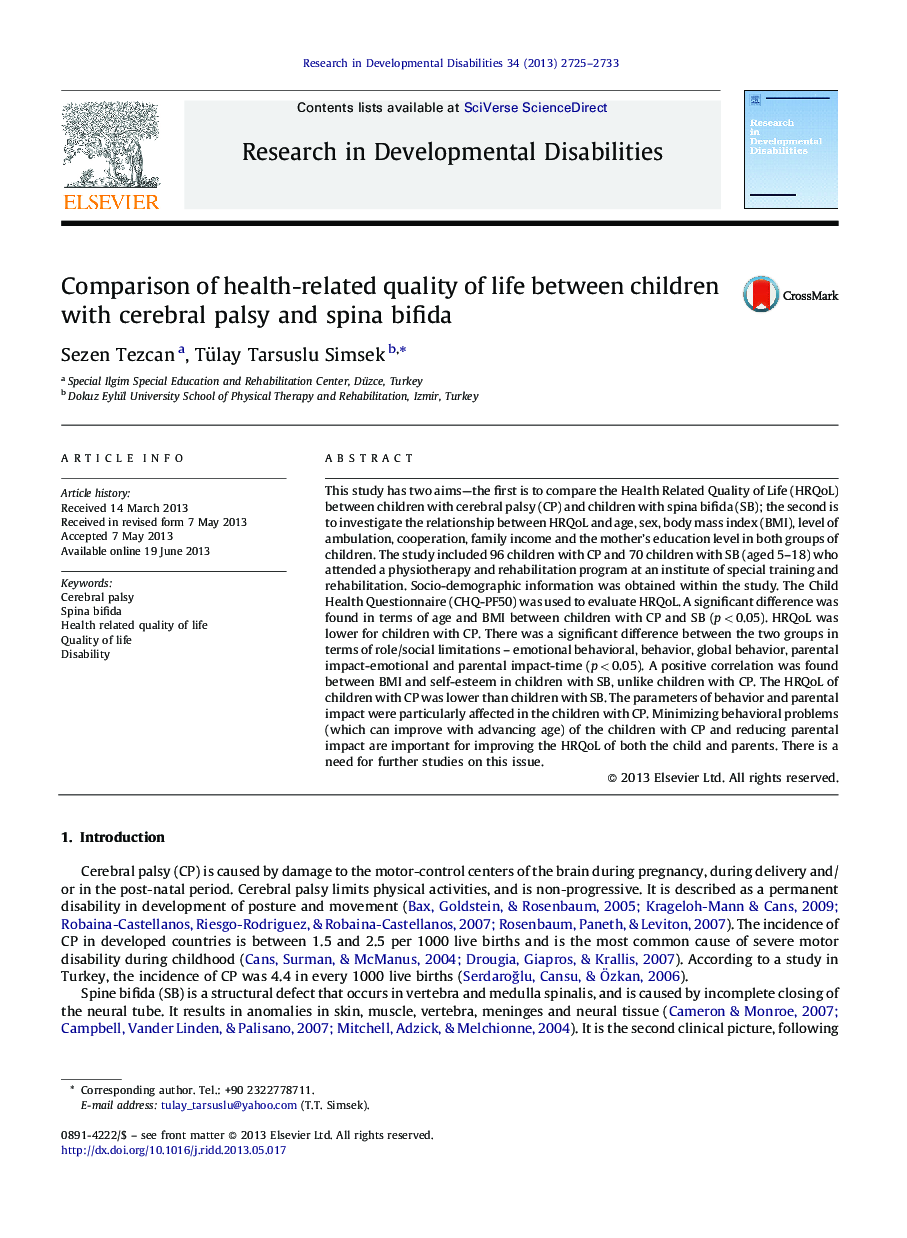| Article ID | Journal | Published Year | Pages | File Type |
|---|---|---|---|---|
| 10317756 | Research in Developmental Disabilities | 2013 | 9 Pages |
Abstract
This study has two aims-the first is to compare the Health Related Quality of Life (HRQoL) between children with cerebral palsy (CP) and children with spina bifida (SB); the second is to investigate the relationship between HRQoL and age, sex, body mass index (BMI), level of ambulation, cooperation, family income and the mother's education level in both groups of children. The study included 96 children with CP and 70 children with SB (aged 5-18) who attended a physiotherapy and rehabilitation program at an institute of special training and rehabilitation. Socio-demographic information was obtained within the study. The Child Health Questionnaire (CHQ-PF50) was used to evaluate HRQoL. A significant difference was found in terms of age and BMI between children with CP and SB (p < 0.05). HRQoL was lower for children with CP. There was a significant difference between the two groups in terms of role/social limitations - emotional behavioral, behavior, global behavior, parental impact-emotional and parental impact-time (p < 0.05). A positive correlation was found between BMI and self-esteem in children with SB, unlike children with CP. The HRQoL of children with CP was lower than children with SB. The parameters of behavior and parental impact were particularly affected in the children with CP. Minimizing behavioral problems (which can improve with advancing age) of the children with CP and reducing parental impact are important for improving the HRQoL of both the child and parents. There is a need for further studies on this issue.
Related Topics
Life Sciences
Neuroscience
Behavioral Neuroscience
Authors
Sezen Tezcan, Tülay Tarsuslu Simsek,
